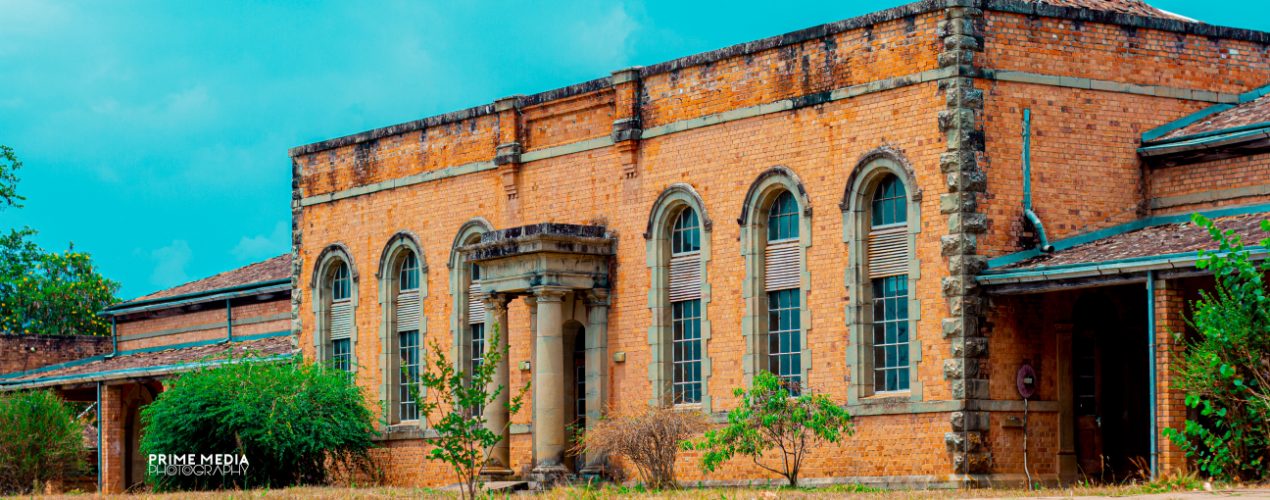The University of Livingstonia is a private owned institution by the CCAP Synod of Livingstonia. It started in 2003 in fulfilment of Rev. Dr Robert Laws’ dream to establish an institution of higher learning. It is started at the place where Dr Laws founded the Overtoun Institute, which was known at the time as the ‘Greatest Achievement’ in Central Africa, specifically in relation to the offering
of quality education and other social services.
The first Campus of University of Livingstonia is occupying the same buildings of Overtuon Institute at Khondowe. The place was characterized by these facilities, such as the church, schools, hospitals, medical school, houses, pipe water and first grid electricity in Central Africa. The schools that were built catered for students from different parts of the country, and neighbouring countries, such as Zambia and Tanzania.
During his lifetime, Dr Laws was of the view that basic education alone was not sufficient to stir socioeconomic development of the people in Africa. This is the reason why he decided to establish an institution of higher learning at Khondowe, which was training teachers, medical students, artisans and ministerial students. It is against this background that the CCAP Synod Livingstonia has over the years carried on the vision and aspirations of Dr Laws, in the provision of education, health and other social services to the people of Malawi and beyond its borders. It does so to complement government efforts. It was within this motivation that the Synod formally launched the first privately owned university in Malawi, known as the University of Livingstonia on 27th August 2003, to provide higher education programmes and qualifications. The first academic programmes to be offered by the University were Bachelor of Education in Humanities and Bachelor of Education in Science. Later on, it started add other academic programmes at undergraduate and postgraduate.
Currently, University of Livingstonia offers the following undergraduate programmes, which are both registered and accredited by the National Council of Higher Education: Bachelor of Education in Science and Humanities, Bachelor of Education in Information, Communication and Technology (ICT), Bachelor of Science in Environmental Management, Bachelor of Science in Public Health, Bachelor of Science in Computer Engineering, Bachelor of Science in Food Security and Nutrition, Bachelor of Social Science in Development Studies, Bachelor of Social Science in Human Rights, Bachelor of Theology and Bachelor of Arts in Theology and Development, and postgraduate degrees in Theology, namely Master of Arts in Theology and Religious Studies, Master of Arts in Theology and Gender Studies and Master of Arts in Theology and Development Studies. These programmes are offered at Laws Campus, which is at Khondowe plateau in Rumphi District and at Ekwendeni Campus, which is at Ekwendeni Mission Station in Mzimba District.

Following its philosophy diversification of academic programmes, the University purchased Viphya Schools in Mzuzu near Moyale Barracks. It decides to start offering other additional programmes under the faculties of Business Studies and Agri-Sciences. The third campus of University of Livingstonia is named Kaning’ina Campus after the Livingstonia Mission’s observatory mission station that was built in 1878. This observatory mission station was built near a place where the new campus is today.
Mission Statement
To inspire learners through relevant education, quality and innovative teaching, research and consultancy, and learning environment, the University of Livingstonia shall develop principled leaders who will transform society for the glory of God.
Vision
To be a vibrant centre of academic excellence guided by Christian values and ethics. In order to achieve this vision, the University in all its Campuses is committed
to:
- deliver and facilitate the teaching and learning process which promote critical thinking,
- train students in Christian ethics and values through Christian living courses and regular morning devotions, and
- encourage learning through research, both in and outside class, interaction with research institutions, participation in national research projects, and encourage research publications by staff and students.
Core Values
- Openness and accepting
- Responsiveness
- Result-oriented
- Innovativeness
- Character development
- Excellence
Download the Brochure here UNILIA Brochure

